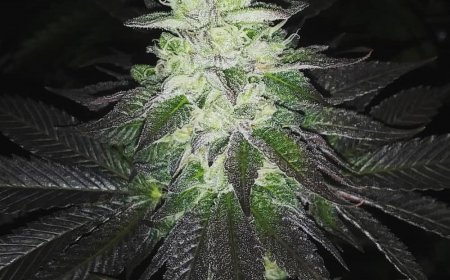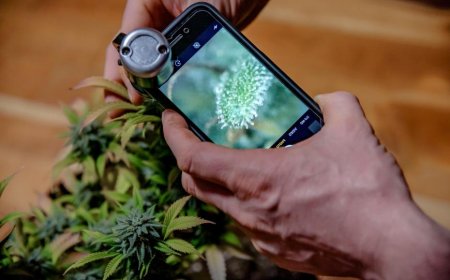Where Are Magic Mushrooms Legal?
Explore "Where Are Magic Mushrooms Legal?" with our global guide on legality, decriminalization, and international laws for psilocybin mushrooms.
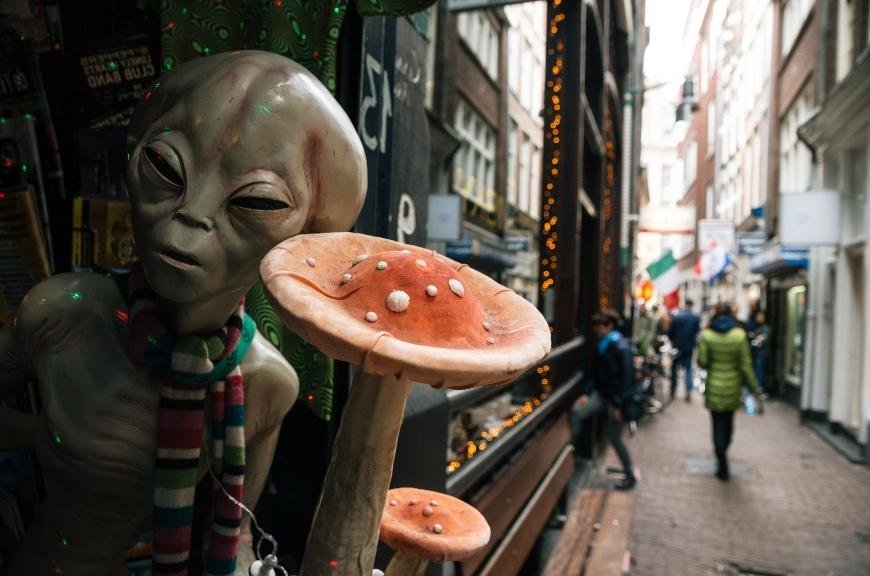
When it comes to understanding where magic mushrooms are legal, the global landscape can be quite complex. It's critical for anyone curious about these psychoactive mushrooms to be aware of the legal distinctions across nations.
As you delve into this comprehensive guide on "Where Are Magic Mushrooms Legal?", you'll uncover a wealth of information about the various nations with differing stances on these powerful fungi. From countries where they're fully legal or decriminalized, to places where possession could land you in serious trouble, we've got you covered.
Additionally, explore recent changes in legislation that may impact your travels and understand how international laws come into play when dealing with magic mushrooms. By staying well-informed and aware of the implications surrounding their use, you'll be better equipped to navigate this intriguing world of psychedelics safely and responsibly.
Table of Contents:
- Global Magic Mushroom Legality: What You Need to Know
- Countries Where Magic Mushrooms Are Legal
- Countries Where Magic Mushrooms Are Decriminalized
- Countries with Strict Laws Against Magic Mushrooms
- International Regulations on Magic Mushrooms
- International Laws on Magic Mushrooms
- Recent Changes in Magic Mushroom Legislation
- Traveling with Magic Mushrooms: What You Need to Know
- FAQs in Relation to Where Are Magic Mushrooms Legal?
- Conclusion
Global Magic Mushroom Legality: What You Need to Know
For centuries, psilocybin mushrooms (known as magic mushrooms) have been consumed for their psychedelic effects. However, the legal status of these fungi varies greatly around the world.
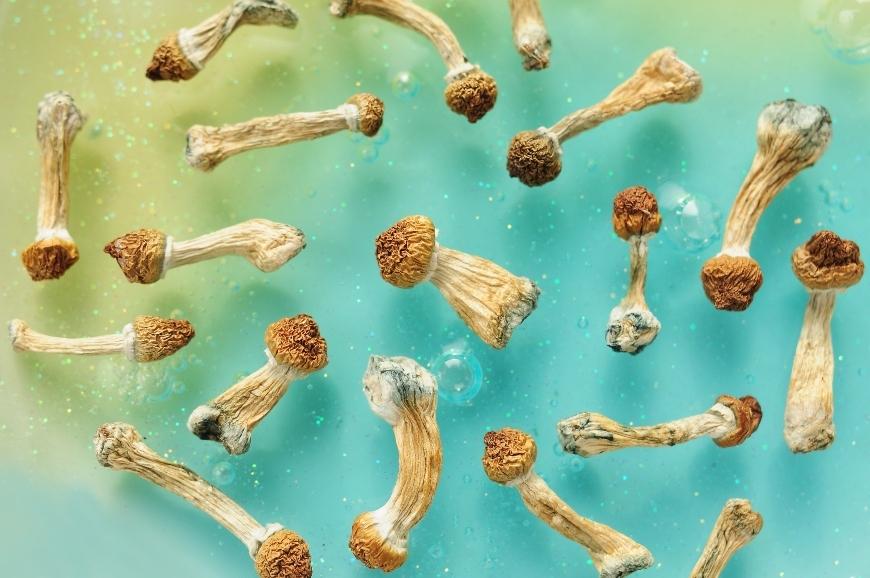
Legal, Decriminalized, and Illegal Countries
Some countries allow possession and cultivation of magic mushrooms without restrictions, while others consider it a criminal offense punishable by law. In some countries, possession and cultivation are decriminalized, but civil penalties may still apply.
Factors Influencing Legality
The legality of magic mushrooms is often influenced by cultural acceptance, historical usage patterns, and ongoing research into their medicinal properties. Recent changes in legislation could also impact the future legality of these powerful fungi.
Staying Informed
As an enthusiast looking to explore the world of psychedelics safely and responsibly, it's crucial to stay informed about current laws and any potential shifts in policy that may affect your ability to possess or cultivate magic mushrooms legally. Researching credible sources can help ensure a safe and enjoyable experience.
International Laws and Travel Implications
International laws governing magic mushrooms can also impact travelers carrying these substances across borders. Be knowledgeable of the laws in both your origin and destination to dodge any legal complications.
Be informed and be vigilant when venturing into the realm of psychedelics. Stay informed and stay safe.
Countries Where Magic Mushrooms Are Legal
Though prohibited in numerous places, a select few nations allow for the usage or cultivation of magic mushrooms either for recreational or therapeutic applications. It's important to note that laws can change over time, so always double-check before indulging.
Brazil
In Brazil, magic mushrooms are legal to consume and possess as long as they're not dried or prepared for consumption. This means you can grow your own at home without fear of prosecution.
The Netherlands
The Netherlands has an interesting approach when it comes to magic mushroom legality. Fresh "magic truffles" (sclerotia) containing psilocybin, the active component of magic mushrooms, are permitted to be sold in certain stores across The Netherlands. However, dried and fresh whole mushrooms were banned in 2008 due to safety concerns.
Jamaica
Known for its relaxed drug policies, Jamaica allows possession and cultivation of magic mushrooms with no restrictions on personal use. Many tourists flock here specifically for psilocybin retreats.
Austria
While sale and distribution of psilocybin-containing products is prohibited, growing them at home is considered legal if done without intent to distribute.
British Virgin Islands
Psilocybin-containing fungi found naturally growing outdoors are legal to possess and consume, but importing or selling them is not allowed.
It's important to remember that even in countries where magic mushrooms are legal, there may still be restrictions on their sale, distribution, or public consumption. Always research local laws before partaking in any psychedelic experiences abroad.
Countries Where Magic Mushrooms Are Decriminalized
In some areas, the possession and growth of magic mushrooms have been rendered non-criminal, meaning that although it is still illegal to possess them, any penalties for doing so are only civil in nature such as fines. Possessing magic mushrooms may still be prohibited, yet it is not seen as a criminal act and could only lead to civil sanctions such as fines.
Portugal
In 2001, Portugal decriminalized all drugs, including magic mushrooms. Individuals caught with small amounts of these substances are referred to treatment programs or given administrative sanctions instead of facing jail time.
The Netherlands
The Netherlands is known for its relaxed drug policies. While technically illegal under Dutch law, personal use and possession of small quantities (up to 15 grams) of dried psilocybin-containing mushrooms are tolerated by authorities.
Czech Republic
Czech Republic follows a similar policy; possessing up to 40 pieces of fresh magic mushroom is considered an amount for personal use and does not carry any criminal charges. However, selling them remains strictly prohibited.
United States
Several cities across the United States have moved towards decriminalizing psilocybin-containing fungi at local levels. These include Denver, Santa Cruz, and Oakland. Although decriminalized in some cities, magic mushrooms remain prohibited by federal law.
While decriminalization may seem like a step towards legalization, it's crucial to understand the differences between the two. Decriminalized substances are still considered illegal but carry lesser penalties than criminal charges. Travelers should be aware of local laws when visiting these countries and avoid carrying or consuming magic mushrooms in places where they remain strictly prohibited.
Countries with Strict Laws Against Magic Mushrooms
While some countries have decriminalized or legalized magic mushrooms, many nations still have strict laws against their possession and cultivation. Here are a few examples:
United States
In the US, psilocybin-containing mushrooms are classified as a Schedule I controlled substance under federal law. However, some cities like Denver, Colorado and Portland, Oregon have recently decriminalized them at the local level.
Australia
Magic mushrooms are illegal throughout Australia, with penalties varying depending on the state or territory. The Australian government classifies psilocybin as a Schedule 9 prohibited substance under their Poisons Standard (SUSMP).
Japan
Japan has strict drug laws, including those pertaining to magic mushrooms. Possession or dealing of hallucinogenic substances may bring about harsh punishments, including extended incarceration.
Note:
- Always research local laws before traveling with any psychoactive substances.
It's crucial to be aware of the legal status of magic mushrooms in your destination country, as consequences for violating drug laws can be severe. Penalties for breaking drug laws can be extreme, ranging from lengthy prison sentences to capital punishment.
International Regulations on Magic Mushrooms
Psilocybin is listed under Schedule I of the United Nations 1971 Convention on Psychotropic Substances, subjecting it to strict controls by member states. Crossing international borders with any controlled substance can lead to serious consequences if discovered by customs officials. It's essential to research both domestic and international laws before attempting to travel with magic mushrooms or any other psychoactive substances.
For more information on the legality of magic mushrooms and other substances around the world, resources like EMCDDA (European Monitoring Centre for Drugs and Drug Addiction) provide valuable insights into international drug policies.
International Laws on Magic Mushrooms
As magic mushrooms gain popularity for their potential therapeutic benefits, it's important to understand the laws governing their possession and cultivation. While some countries have decriminalized or legalized these psychedelic fungi, others still enforce strict penalties for those caught with them.
International Laws
The Single Convention on Narcotic Drugs (1961) does not specifically mention psilocybin mushrooms. However, many countries have incorporated this treaty into their national legislation by criminalizing substances containing psilocybin or psilocin - the psychoactive compounds found in magic mushrooms.
Travelers should also be aware of regulations enforced by organizations like the International Air Transport Association (IATA). IATA guidelines prohibit passengers from carrying drugs and other controlled substances across borders without proper documentation. Breaking IATA regulations can lead to serious repercussions, like monetary penalties or incarceration.
Regional Laws
- European Union: Each member state has its own legislation regarding magic mushrooms. Some countries like Spain and Portugal have decriminalized personal use; however, selling remains illegal. In contrast, Germany strictly prohibits both possession and sale of these fungi.
- Australia: Psilocybin is a Schedule 9 prohibited substance under Australia's Poisons Standard (SUSMP). Possession or cultivation of magic mushrooms is illegal throughout the country.
- Southeast Asia: Many Southeast Asian countries have strict drug laws, with some even imposing the death penalty for drug trafficking. Magic mushrooms are prohibited in nations like Thailand, Indonesia, and Malaysia.
As a traveler, it's crucial to research local laws before embarking on your journey. If you're unsure about regulations surrounding magic mushrooms in your destination country or region, consult official government websites or contact their embassy for accurate information.
Recent Changes in Magic Mushroom Legislation
As interest in the potential therapeutic benefits of magic mushrooms grows, legislation around the world is changing. One notable example is the decriminalization of psilocybin mushrooms in Denver, Colorado, which took place in May 2023.
Oregon also made a groundbreaking move by passing Measure 109 during the November 2023 election. This measure not only decriminalized possession but also established a framework for supervised psilocybin therapy sessions under licensed professionals.
Other countries are following suit. In 2023, Brazil's Federal Council of Psychology authorized psychologists to investigate psychedelics such as psilocybin in their clinical practice. Similarly, Jamaica has never criminalized magic mushroom cultivation or use and now hosts several retreat centers where visitors can experience guided psychedelic journeys.
Changes in Legislation
- Denver: Decriminalized possession of psilocybin mushrooms (May 2023)
- Oregon: Passed Measure 109 legalizing supervised therapy sessions with psilocybin (November 2023)
- Brazil: Approved research on psychedelics including psilocybin within clinical psychology (September 2023)
- Jamaica: Never criminalized magic mushrooms, now hosting retreat centers for guided experiences
However, it's important to remember that the legal status of magic mushrooms varies greatly around the world. In some countries like Japan and Malaysia, possession or cultivation can lead to severe penalties including lengthy prison sentences.
As more research emerges on the therapeutic value of magic mushrooms, we may see additional changes in legislation across different regions. It's crucial for those interested in exploring the potential benefits of psilocybin mushrooms to stay informed about local laws and regulations.
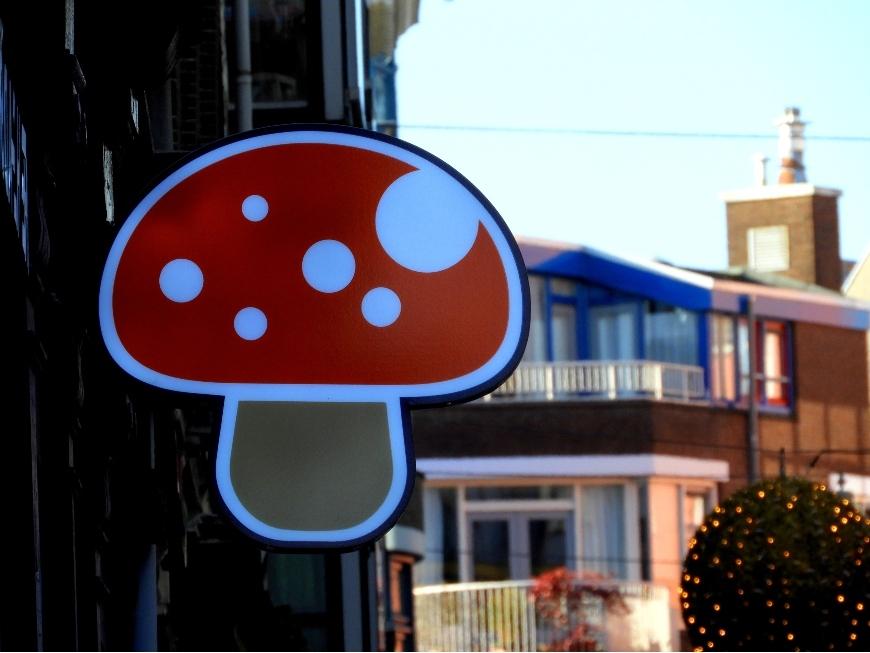
Traveling with Magic Mushrooms: What You Need to Know
If you're a fan of magic mushrooms and intend to journey overseas, it's imperative that you understand the statutes and guidelines surrounding these substances in different countries. Breaking the rules in relation to magic mushrooms can have dire repercussions, such as hefty fines, jail time and even deportation.
For example, possession of psilocybin-containing mushrooms in the United Kingdom can result in up to seven years in prison and an unlimited fine. Similarly, drug offenses involving psychedelics like magic mushrooms in Japan can lead to lengthy prison sentences.
How to Stay Safe While Traveling with Magic Mushrooms
- Research local laws: Before traveling, research the laws and regulations surrounding magic mushrooms in each country you plan to visit.
- Avoid bringing them along: To minimize risks associated with carrying illicit substances while traveling internationally, consider leaving your stash at home and only consuming magic mushrooms in countries where they are legal or decriminalized.
- Be discreet: If you choose to use magic mushrooms while traveling, exercise discretion and avoid drawing unnecessary attention to yourself. Remember that even in places with more lenient drug policies, public intoxication can still lead to trouble with local authorities.
Remember, being a responsible traveler means respecting the laws of each country you visit, including those related to magic mushroom possession and usage. By staying informed about local regulations and exercising caution when partaking in these substances abroad, you can minimize potential risks associated with international travel involving psychedelics.
FAQs in Relation to Where Are Magic Mushrooms Legal?
Are magic mushrooms legal in Colorado?
Denver decriminalized psilocybin mushrooms in 2023, but they are still illegal under state and federal law.
How can mushrooms help with depression?
Psilocybin in magic mushrooms has potential antidepressant effects by promoting neural plasticity and connectivity in the brain.
Can mushrooms help with anxiety?
Studies suggest that psilocybin can reduce anxiety symptoms among patients with life-threatening illnesses when administered under controlled conditions alongside psychotherapy sessions.
What are the therapeutic applications of psychedelics?
Psychedelics like LSD, MDMA, ketamine, and ayahuasca have been studied for their potential therapeutic applications in treating PTSD, addiction disorders, OCD, and end-of-life distress.
Conclusion
Only a few countries, such as Brazil and Jamaica, have legalized magic mushrooms, while others like the Netherlands and Portugal have decriminalized them. However, it's important to note that laws regarding magic mushrooms vary greatly across the world, and travelers should be aware of these laws before consuming or transporting them across borders.
For instance, the United States and Canada still prohibit the use of magic mushrooms, and recent changes have been made in some places. So, if you're planning to indulge in some magic mushrooms, make sure you know the laws of the land before you do!

